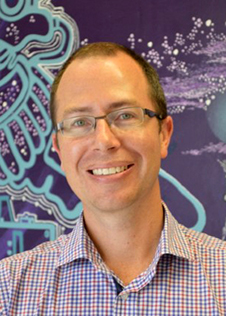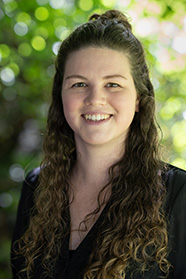Investigators:
- Associate Professor Ben Wheeler (PI)
- Dr Martin de Bock (PI)
- Dr Alisa Boucsein
- Carla Frewen (Research Nurse)
Life-long burden for those with type 1 diabetes
Type 1 diabetes is a chronic disease often diagnosed in childhood. In Aotearoa New Zealand we have one of the highest rates of paediatric diabetes in the world, with over 5000 children, youth, and young adults currently living with type 1 diabetes.
Unlike type 2 diabetes, type 1 diabetes is an auto-immune disease. Cells in the pancreas which help control blood glucose levels (by secreting insulin) are destroyed by the immune system and therefore type 1 diabetes cannot be cured. People living with this disease have a considerable life-long burden of managing their glucose levels.
New treatment options needed
Complications of type 1 diabetes can lead to a reduced life expectancy and therefore blood glucose levels need to be intensively monitored and managed to avoid these complications. Unfortunately less than a third of patients manage this successfully, with Māori, Pacific Islanders, and youth (aged 13-25 years) being particularly over-represented in poor outcomes from type 1 diabetes.
New technologies, such as artificial pancreas systems, can combine glucose monitoring with an insulin pump and computer-based glucose control algorithms to help automate the process of managing glucose levels. The research team is investigating some of these new systems (termed advanced hybrid closed loop or AHCL) to see if improved automation may be the key to success for those who are experiencing considerable disease burden and distress.
Closed loop study in youth
Youth with unhealthy glycaemic control are usually excluded from clinical technology trials. But this group may gain the most benefit from AHCL systems. In addition, youth (especially those from lower socioeconomic backgrounds) are less likely to receive funded diabetes technology in New Zealand.
The closed loop therapy study will trial the world's most advanced commercial automated insulin delivery system (MiniMed™ 780G) in youth with broad ethnic backgrounds. The study will identify if AHCL is an appropriate and safe therapy for youth struggling with diabetes. While better control of glucose levels is a key outcome for this trial, other features such as burden reduction, improved quality of life and treatment satisfaction will also be explored.
This world-first longitudinal study will be an important step towards integrating AHCL technology into regular diabetes care for youth, with the expectation that it will reduce daily diabetes management burden and improve short-term and long-term health outcomes in this high risk group.
Join the study
If you are aged 13-25 years living with type 1 diabetes and are interested in being a part of this trial, and you have a history of HbA1c levels ≥ 69 mmol/mol and are using traditional injection therapy, please contact:
Associate Professor Ben Wheeler
or
Dr Alisa Boucsein
Publications
Collyns OJ, Meier RA, Betts ZL, Chan DSH, Frampton C, Frewen CM, Hewapathirana NM, Jones SD, Roy A, Grosman B, Kurtz N, Shin J, Vigersky RA, Wheeler BJ, de Bock MI. Improved Glycemic Outcomes With Medtronic MiniMed Advanced Hybrid Closed-Loop Delivery: Results From a Randomized Crossover Trial Comparing Automated Insulin Delivery With Predictive Low Glucose Suspend in People With Type 1 Diabetes. Diabetes Care. 2021 Apr;44(4):969-975. doi: 10.2337/dc20-2250.



